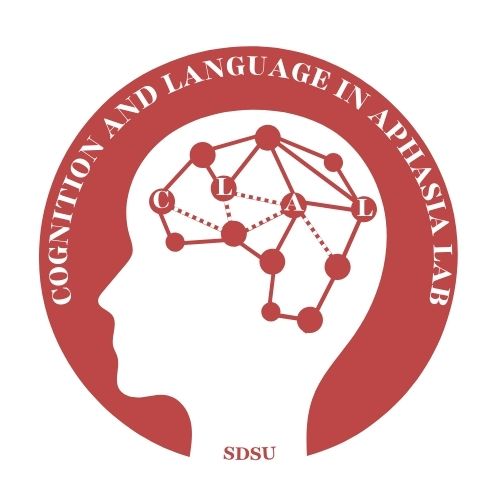Welcome to the SDSU Cognition and Language in Aphasia Lab (CLAL)
What is Aphasia?
Aphasia is an acquired language disorder.
It typically occurs as a result of a stroke or other injury on the left side of the brain.
A person with aphasia may have problems with…
- Thinking of the words they need.
- Putting together full sentences.
- Understanding what they hear.
- Understanding what they read.
- Communicating through writing.
Problems may be mild to severe and may interfere with every aspect of life.
It’s a loss of language, not intelligence!
What does the CLAL do?
Researchers in the CLAL are interested in understanding aphasia. Specifically, we work to understand:
- The implicit, unconscious mechanisms that support the fluent, rapid use of language;
- How these implicit mechanisms break down in aphasia;
- The roles and interactions of language, attention, and memory in aphasia.
- How we can use this information to improve treatment for word retrieval problems in aphasia.
We use primarily behavioral methods to do our work. This includes:
- Tests of speech, language, and cognitive skills that are used in typical speech-language therapy clinical practice.
- Measures of reaction time and accuracy to stimuli that are presented for naming and perception.
- Computer-based treatment methods to tap directly into implicit language processing.
- Some of our studies involve coming for just a few sessions to help us test theories and models of aphasia. Other studies involve coming in for treatment over several weeks.
We are also committed to supporting the community of people and families living with aphasia.
Announcements
Contact Us
Address:
School of Speech Language and Hearing Sciences
5500 Campanile Dr.
San Diego, CA 92182-1518
E-mail:
slhs.clal@sdsu.edu
Phone:
(619) 594-7880

